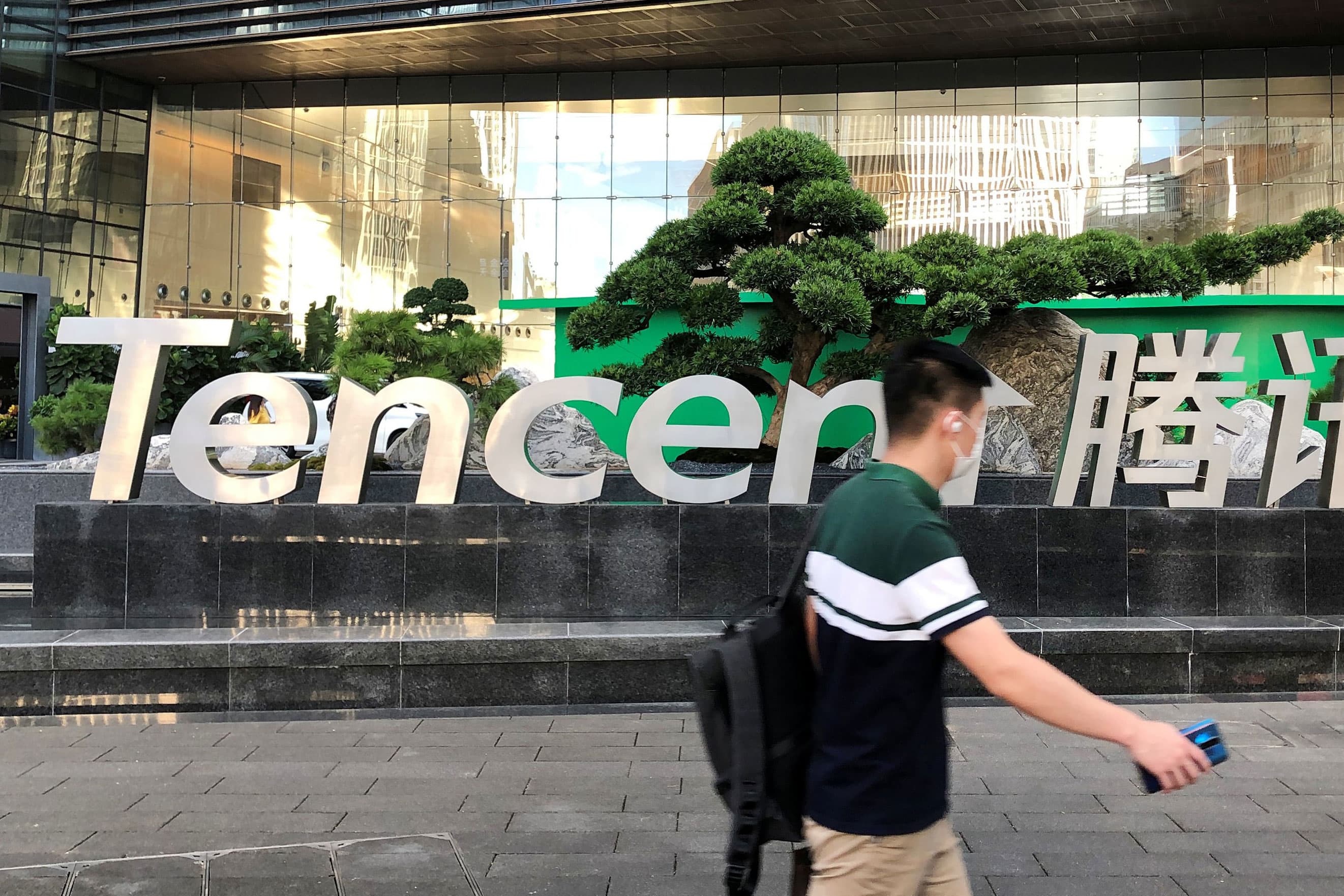
People walk past a Tencent sign at the company headquarters in Shenzhen, Guangdong province, China August 7, 2020.
David Kirton | Reuters
SINGAPORE — China has drafted a slew of new anti-monopoly laws that will likely hit the country’s major internet companies, says Morgan Stanley.
It comes as the competitive landscape in China intensifies and tech giants continue to fend off new rivals that are taking away chunks of their market share, according to a report by the investment bank.
China’s bureau for regulating monopolies — the State Administration for Market Regulation (SAMR) — issued draft rules on Tuesday to stop anti-competitive practices in the internet sector. It said the laws are aimed at protecting fair competition in the market and safeguarding consumers’ interest.
SAMR is seeking public feedback on the draft rules until Nov. 30.
“We believe potential implementation of the new antitrust regulations has negative implications for major Internet companies with dominant positions across segments,” Morgan Stanley analysts said in a note on Wednesday.
It is likely due to rising risks of competition, lower barriers to entry, and higher hurdles for industry consolidation from future mergers and acquisitions.
“That said, competition has already intensified in recent years, with ‘incumbents’ (e.g., Alibaba, Tencent) losing market share to ‘disruptors’ (e.g. Pinduoduo, Bytedance), so the consequences will likely be less meaningful given reduced dominance across segments compared to a few years ago,” they added.
Chinese tech shares took a beating on Wednesday, a day after the draft regulations were announced, and the biggest tech names saw $280 billion wiped off their market value within days.
Here are five internet companies that will be negatively impacted by China’s potential anti-trust laws, according to Morgan Stanley.
Alibaba
There have been periodic complaints of merchant exclusivity on e-commerce platforms, including on Alibaba’s Tmall platform. The Financial Times reported earlier this year that some merchants were told they would be pushed off Tmall if they used a rival platform — a local home appliance manufacturer even sued Alibaba over it, according to a 2019 report from Chinese media Caixin.
But the new proposed regulations will not have as much impact on the e-commerce giant today as it would have had years ago, Morgan Stanley pointed out.
“This is because of the already fierce competitive environment in e-commerce nowadays,” the analysts said, adding that some of Alibaba’s market share have already been chipped away by competitors.
The draft law mentions the use of subsidies and discounts may potentially deter fair competition, which could affect “Alibaba’s promotional activities, although to what extent such subsidies will be regarded as a violation of antitrust rules remains uncertain,” the analysts said.
Tencent
Tencent has dominant presence in areas like online gaming, social network, online music, video and online reading through China Literature.
The company’s “focus on online entertainment involves a wide range of content innovation and can be less relevant to antitrust scrutiny,” the Morgan Stanley analysts said. “Thus, the impact on Tencent could be relatively manageable except for the potential misuse of user data across platforms, or blocking competitors access to the WeChat ecosystem.”
China’s most popular messaging app WeChat — which has over 1.15 billion monthly active users — is owned by Tencent. Though the app started out as a messaging service, users can now do everything on it from making payments to hailing a ride, or even booking flights.
Rising competition from video-sharing app ByteDance has reduced the amount of time users spend on Tencent’s platforms, which could also alleviate “certain concerns over Tencent capturing a majority of user mind share in China,” the analysts wrote.
Still, the new rules could create more hurdles for Tencent when it comes to future mergers and acquisitions — “an effective method” for the company to build up its ecosystem of various services and platforms.
Pinduoduo
Pinduoduo is the fast-growing challenger to Alibaba and JD.com in China’s hypercompetitive online shopping market.
“Should the rules eventually limit the use of subsidies provided by platforms, we think that the potential limitation will affect Pinduoduo in particular, because ‘Rmb10bn subsidy’ is one of its central strategies to drive user engagement,” the Morgan Stanley analysts said.
Pinduoduo said last year that it launched a 10-billion-yuan ($1.5 billion) initiative with sellers and gave out coupons and subsidies to customers on its platform.
JD.com
JD.com, another major e-commerce name in China, also employs a subsidy plan as part of its promotional activities but it does not play as crucial a role for the company as it does for Pinduoduo, according to the analysts.
Still, they said, the new anti-monopoly rules could reduce JD.com’s bargaining power over its suppliers in the future.
Meituan Dianping
Meituan Dianping is an online platform with services ranging from food delivery to ticketing.
The company solidified market share in the food delivery business, competing against Alibaba-owned Ele.me, by capturing a higher portion of exclusive restaurants on its platform, according to the Morgan Stanley analysts.
“We note the potential implementation of new antitrust regulations could also weigh on Meituan’s take rate charged to merchants,” they said, adding, “On the other hand, Meituan has been shifting gears to focus on promoting a food delivery membership program to cultivate user behavior and raise order frequency.”
With fewer restaurants in China opting for platform exclusivity, it could mitigate certain concerns about the new antitrust regulations, according to the analysts.






















